Doha, 15 Oct. 2024
Dr. Christian Tudor, ambassador of European Union to State of Qatar has said that for the first time ever, Heads of State & Government of the European Union (EU) and the Gulf Cooperation Council (GCC) will gather in Brussels on 16 October 2024. The Summit will be co-chaired by the President of the European Council, Charles Michel, and by the GCC Rotating Presidency, represented by the Emir of State of Qatar, Sheikh Tamim bin Hamad Al Thani.
Addressing to members of media at his residence, he said that It will see the participation of the President of the European Commission, Ursula von der Leyen, the High Representative and Vice President (HR/VP) Josep Borrell Fontelles, and of the Heads of State and Government of the 6 GCC Member States and the 27 EU Member States.
He added that this Summit is a key milestone to give a further boost to the region-to-region partnership. As the first-ever Summit at the level of heads of state, it confirms the intention held by both blocs to elevate the growing partnership between the EU and the GCC to the strategic level. Building upon the 2022 EU Joint Communication for a Strategic Partnership, the 27th EU-GCC Joint Council held in Muscat on 10 October 2023, and the EU-GCC High-Level Forum on Regional Security and Cooperation held in Luxembourg on 22 April 2024, the EU and the GCC are on track to discuss together themes of common interest such as security, trade and investment, climate and energy, connectivity, transport, and people to people contacts.
The envoy said that a stronger partnership with the Gulf on these themes will allow to address arising challenges together. Amid the current geopolitical situation in the Middle East and the risk of a regional escalation, the EU appreciates the efforts of GCC members towards de-escalation of tensions. The Summit will be an opportunity for the EU and the GCC to work together on crucial themes of mutual interest and build a partnership based on sustainable prosperity and stability for both sides.
Dr Tudor said that as EU and GCC leaders confirm their joint commitment to work together, the EU-GCC Summit on 16 October in Brussels aspires to fundamentally strengthen EU-GCC cooperation at the regional and bilateral levels, giving way to an ever-stronger strategic partnership.
He told that next annual EU-GCC Business Forum will be held in end of November in Doha in which business houses from EU States will be participating along with the members of the business community from GCC States.
Replying to various questions from media members, following are added comments on various areas of bilateral relationship
Main objectives:
Building on the EU’s 2022 Joint Communication on a Strategic Partnership with the Gulf, this Summit aims to strengthen cooperation between the EU and the GCC and its members to advance shared interests.
At the Summit we want to pave the way to a deeper cooperation in trade and investments, the green and digital transition, sustainable energy, education, research and innovation and investments in projects connecting Asia, the Middle East, and Europe through both hard and digital infrastructure.
At the same time, the EU is dedicated to help fostering people-to-people relations.
The EU can support inter-regional ties and bilateral cooperation in education, vocational training, women empowerment, skills development, and civic participation through different programmes including Erasmus+.
Study visits of young journalists and diplomats, exchanges of students and researchers as well as cultural diplomacy initiatives can complement.
The EU aims to continue and deepen the EU-GCC partners Human Rights Dialogues on the basis of mutual respect. The latest EU-Qatar Human Rights Dialogue took place in late September in Brussels and both sides acknowledged that it was very successful. EU and Qatar are currently working on implementing joint projects together as a follow-up to the latest Dialogue.
The EU and the GCC are on track to discuss together themes of common interest with an emphasis to trade and investment
- This is a strong political signal to business communities in the Gulf, including with the exploration of potential EU chambers of commerce in all GCC states.
- The next annual EU-GCC Business Forum will be held in the end of in November in Doha.
- Moreover, Global Gateway provides the framework for the EU and the GCC partners to cooperate on strategic, sustainable investments across the world.
- Beyond Global Gateway, there are also opportunities for cooperation between the EU and the GCC in other, more complex regions, such as the Horn of Africa, Yemen, and Afghanistan.
The EU and the Gulf countries have already joined efforts to push for a solution to the Israel-Palestine conflict. The EU supports the current diplomatic efforts for a cease-fire, with the leading role of Qatar. Together with Saudi Arabia and other partners, we have launched a global alliance to advance the Two-State solution.
The security of our regions is deeply interconnected. Therefore, strategic coordination on keyregionalsecurity files (de-escalation in the Middle East, a political solution to the Israeli-Palestinian conflict, regional nuclear non-proliferation, Russia’s aggression against Ukraine, violence in the Horn of Africa) is an important deliverable of the Summit.
The current regional security situation is fragile. The EU remains committed to engaging with regional actors to call for diplomacy, dialogue, restraint and to preventfurther military escalation. We are grateful to our Gulf partners for their intensive efforts to date.
As a regional organisation, the GCC is one of EU’s key security partners. Likewise, the EU intends to become a security interlocutor for the GCC.
EU and GCC will discuss enhancedcooperation on maritime security, counter-terrorism, non-proliferation, and cyber and hybrid threats as well as response to disasters.
Building on the successful launch of the EU-GCC Structured Security Dialogue in January 2024, the aim is to have the second edition of the EU-GCC High Level Forum on Regional Security and Cooperation in 2025.
The Summit will be the occasion to establish structured cooperation on disaster management and emergency response through the signature of an Agreement between the EU’s Emergency Response Coordination Centre (ERCC) and the GCC Emergency Management Centre (GCC-EMC).
Recent developments in the Red Sea with ongoing Houthi attacks against merchant vessels proved that maritime security is important for the EU and for theGulf partners. It is a shared interest and key for global trade.
The EU has agreed to continue working closely with the Gulf countries to address securitychallengesand freedom of navigation in the Red Sea and beyond, in the framework of Operation ATALANTA. The new EU maritime Operation ASPIDES offers further opportunities to strengthen this collaboration.
GCC countries are key players in energy markets but also major investors in renewablesand green hydrogen, and can play a key role in global decarbonisation efforts.
Window of opportunity amid the energy crisis triggered by Russia’s invasion of Ukraine, the green transition, the “Vision” reform programmes in GCC countries, and Global Gateway.
Cooperation on the green transition is an opportunity to foster economic diversification, decarbonisation and sustainable competitiveness.
There are a number of global challenges that the EU wants to address together or in close coordination with the GCC in multilateral fora, such as the fight against climatechange, conflict resolution, sustainable development, finance, and humanitarian assistance.
On humanitarian aid, EU-GCC collaboration is further strengthened to bridge the gaps in view of the growing needs in the region and beyond and to play a meaningful role in at the global stage.
The 2022 Joint Communication on the Strategic Partnership with the Gulf provided a solid platform for bringing humanitariandialogue and cooperation with GCC forward.
The EU-GCC Summit will be a further opportunity to discuss on joint actions for an enhanced humanitarian response to some of the key crises.


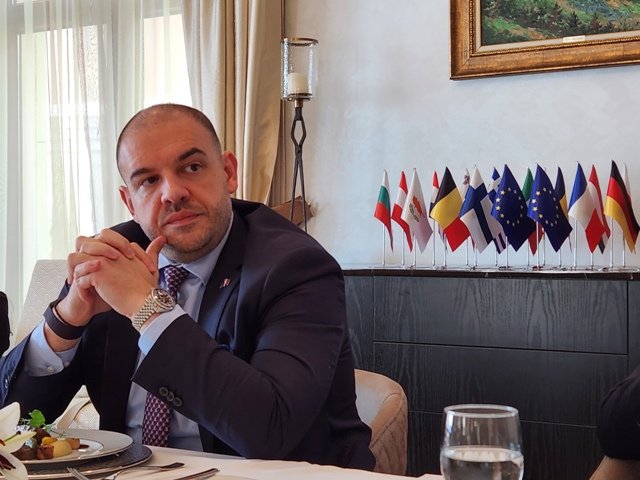
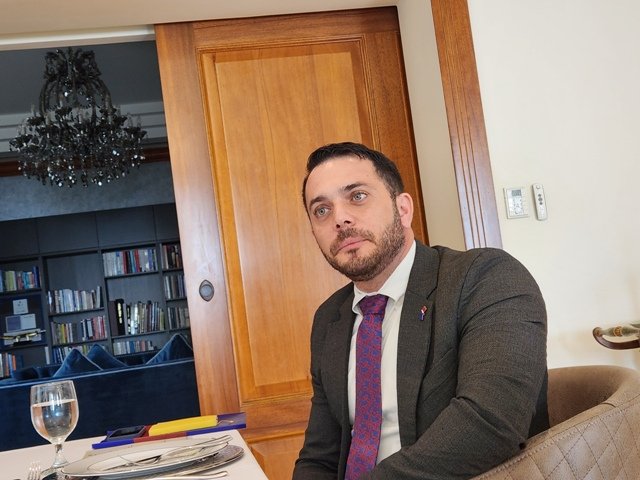

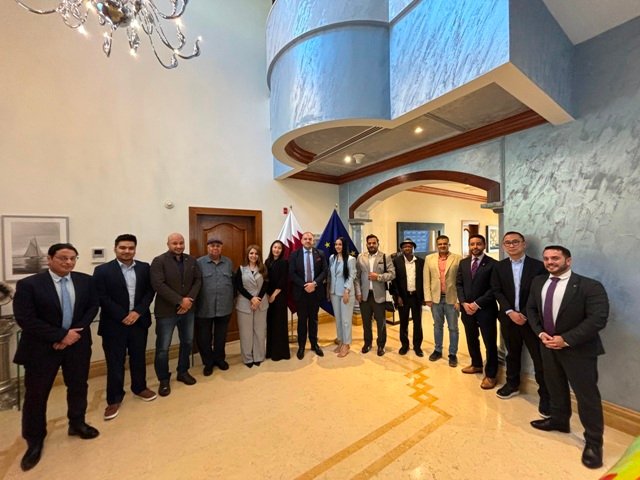



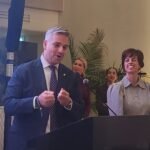

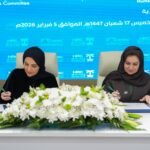


Excellent writing Asharf